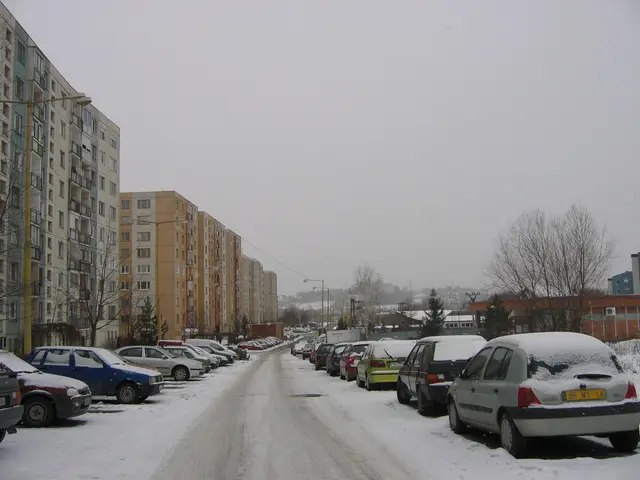Han Duck-soo Steps Down for Presidential Bid
South Korean Acting President steps down from office.
In a surprising turn of events, Acting President of South Korea, Han Duck-soo, announced his resignation on May 1st, as detailed by our site, citing Deutsche Welle. Han broke the news during a press conference on television, linking his decision to step down with his ambition to run for the presidential post of the nation.
"I stand before two choices. One is to complete the heavy duty I'm currently performing. The other is to relinquish this burden and accept an even heavier one," Han mentioned.
Notably, Han is regarded as the main conservative contender for the South Korean presidential election scheduled for June 3rd.
Remember, Han Duck-soo temporarily took over the presidency after South Korea's parliament passed the impeachment of President Yoon Suk-yeol. Less than two weeks into his tenure, Han himself was on the brink of impeachment due to opposition's allegations of failure to block Yoon's declaration of a military state of emergency. Subsequently, the court overruled the impeachment charge, reinstating Han back to his position.
Diving Deeper
The enigmatic control of South Korea lies in the hands of a select few influential families, often referred to as the "Chaebol" layer. These powerful conglomerates, such as Samsung, Hyundai, SK Group, and LG Corporation, have held sway over the nation since the Korean War's aftermath, when the government granted them favorable conditions like low-interest loans and subsidies to propel economic advancement.
Chaebols have played an instrumental role in South Korea's astounding economic transformation, earning global prominence and dominating sectors like electronics, automobiles, and shipbuilding. However, their monopolistic tendencies give rise to concerns about market concentration.
Moreover, their political influence is substantial. With their significant market power, chaebols have the ability to shape political and economic policies. Close ties with lawmakers and political leaders can impact decision-making processes considerably.
Despite contributing to Korea's success, chaebols have widened societal disparities by hoarding wealth and power among a restricted number of families. Their influence transcends beyond the economy, penetrating popular culture and the education system.
Balancing the benefits chaebols bring with societal needs will be essential for future development. However, reforms are urgently needed to ensure sustainable growth and diminish inequalities.
Meanwhile, as the presidential race heats up, questions surrounding Han Duck-soo's plans and the country's trajectory loom large. Stay tuned for updates!
- Probably, Han Duck-soo's decision to step down as Acting President to run for the presidency might be heavily influenced by the political landscape, given his ambition and the looming South Korean presidential election scheduled for June 3rd.
- The impeachment of President Yoon Suk-yeol paved the way for Han Duck-soo's temporary presidency, but he too faced the brink of impeachment due to opposition's allegations during his tenure.
- Despite the significant role Chaebols like Samsung, Hyundai, SK Group, and LG Corporation have played in South Korea's economic transformation, their political influence, which largely stems from their market power and close ties with lawmakers and political leaders, raises questions about market concentration and societal disparities.
- The significance of the chaebol's political influence lies not just in the shaping of economic policies, but also in their impact on decision-making processes, as they wield substantial power and wealth among a restricted number of families.
- In the general news, the general public is keeping a close eye on Han Duck-soo's presidential bid and the South Korean political landscape, especially in light of the ongoing war-and-conflicts policy and legislation discussions.







